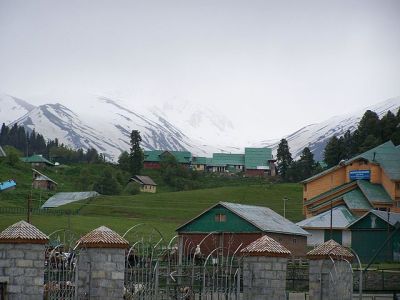Exploring the Organic Farming Techniques of Srinagar
Srinagar, the capital city of Jammu and Kashmir, is not only famous for its breathtaking landscapes and serene lakes but also for its organic farming techniques. The region is known for its rich soil and favorable climate, making it an ideal place for growing a wide variety of crops. In recent years, there has been a growing interest in organic farming in Srinagar, with farmers adopting sustainable methods to cultivate fruits, vegetables, and grains. Let's explore the organic farming techniques of Srinagar and understand why they are gaining popularity.
1. Use of Traditional Methods
Organic farmers in Srinagar rely on traditional farming methods that have been passed down through generations. These methods involve using natural fertilizers like compost and vermicompost to enrich the soil and provide essential nutrients to the crops. Farmers also practice crop rotation, which helps in maintaining the fertility of the soil and reducing the risk of pests and diseases. Traditional methods emphasize the use of organic inputs and minimize the use of chemical pesticides and fertilizers, making it a sustainable way of farming.
2. Preservation of Indigenous Seeds
One of the key aspects of organic farming in Srinagar is the preservation of indigenous seeds. Farmers save seeds from their best-performing crops and store them for future use. These indigenous seeds have adapted to the local climate and are more resistant to pests and diseases. By preserving and using indigenous seeds, farmers can maintain the biodiversity of the region and ensure a sustainable source of seeds for future generations.
3. Integration of Livestock
Organic farms in Srinagar often have livestock integrated into the farming system. This integration not only provides additional income through the sale of milk, meat, and eggs but also creates a cycle of sustainability. Livestock waste is used as organic manure, which helps in enriching the soil and improving its fertility. The animals also play a crucial role in controlling pests and weeds, reducing the need for chemical interventions.
4. Natural Pest Control
Srinagar's organic farmers prioritize natural pest control methods over chemical pesticides. They encourage natural predators like ladybugs, praying mantises, and birds to thrive on their farms. These predators feed on pests and help in maintaining a balanced ecosystem. Additionally, farmers use neem oil, garlic, and other natural substances to control pests and diseases. This approach not only protects the environment but also ensures that the produce is free from harmful residues.
5. Support from Government and NGOs
Organic farming in Srinagar has received significant support from the government and non-governmental organizations (NGOs). The government has implemented various schemes and subsidies to promote organic farming practices. NGOs conduct training programs and workshops to educate farmers about organic farming techniques and provide them with the necessary resources. This collaborative effort has played a crucial role in the widespread adoption of organic farming in the region.
Conclusion
Srinagar's organic farming techniques are a testament to the sustainable and eco-friendly practices that can be adopted in agriculture. By relying on traditional methods, preserving indigenous seeds, integrating livestock, and emphasizing natural pest control, organic farmers in Srinagar are setting an example for the rest of the world. The government's support and the efforts of NGOs have further strengthened the organic farming movement in the region. If you are visiting Srinagar, make sure to explore the organic farms and witness firsthand the beauty of these sustainable farming practices.
Don't forget to share this blog post with your friends and family who love sustainable agriculture!
Disclaimer : The information provided in this blog is for general informational purposes only. While we strive to keep the content accurate and updated, TravelSetu assumes no liability for errors or omissions. If you believe any part of this blog infringes your rights or causes concern, please notify us immediately at info[at]travelsetu[dot]com so that appropriate action can be taken.

















